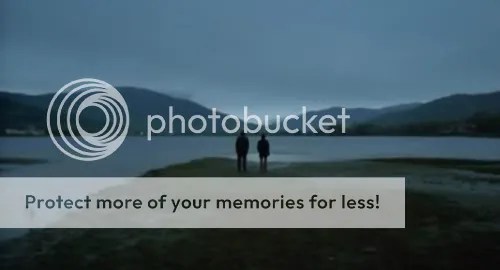About as surprisingly great as Nachmittag is disappointing. That is to say, a perfect example of what I look for in “contemplative” cinema. I could produce a list of directors and films that this film invites comparisons to (Tsai and Angelopolous quickly come to mind) but it would risk demolishing what is undoubtedly one of the most personal cinematic experiences of all-time. Indeed, this can be classified under the genre of “lost souls finding each other” which I love so dearly but it’s plenty of other things as well. In other words, a perfect example of everything I look for (and love) in cinema.

Lonely Yusuf returns to his childhood home following the death and funeral of his mother. While he is indeed familiar with the surroundings, he is also sad and alone. He goes to his mother’s house to collect what little family belongings are left. While there, he meets Ayla, a much younger girl who has been taken care of his mother for the past couple of years. She informs him that her mother’s final wish is for him to sacrifice a ram in her honor. He is against such a concept, but goes ahead anyway, inviting Ayla to come along. Along the way, they begin to form a connection, but they both struggle to express their feelings.

It’s nearly impossible for me to not like a film about alienation, loneliness, isolation, and so on, especially when the themes are addressed so ingenuously as they are in this film. It would be a lie to consider the film unique as it pretty much plays off all the textbook traditions of Tsai, Tati, and so on but a lack of originality is not the mark of a problem. Truth be told, Kaplanoglu throws in some rather rapid editing, from time to time, but still this very much a “slow” film that will leave many people restless and eventually, befuddled. It’s a bit of an art film cliche, I suppose, but I could care less when the results are so perceptive, accomplished, and poignant.

All of the technical perfections don’t even compare in importance anyway, to just how personal of film Kaplanoglu has made. Such a element goes far beyond aesthetics or shot lengths. While the muted colors of the cinematography and the tension brought on by the film’s austerity do make it deeply engaging, it’s the film ability to side-step anything dramatic and immediately engage the viewer in a mental way. One could argue that the film is “inconsequential” in that sense but I would contest that going through the events that these characters go through is very consequential in a mental sense. Nothing physically happens, but blown opportunities, repressed feelings are things that you simple cannot forget. There’s been plenty of films that have expressed such ideas, but never quite as brilliantly as Kaplanoglu has right here.

The word “contemplative” is thrown around a lot, but it definitely applies here and again, it has more to do with the characters than technical accomplishments. There’s many sequences of the would-be lovers just driving and staring off into the distance of the sun. There are shots that echo Monte Hellman’s Two-Lane Blacktop of all things, but that also remind one of the personal sadness that is so present in Vincent Gallo’s The Brown Bunny. I suppose one could make the connection between this and Theo Angelopolous’ Beekeeper as well since it also depicts a would-be romance on the road. I think that such comparisons downplay just how rewarding this film is as it is an experience all on its own. Yes, there’s certainly echoes of other great films (such as the ones listed above) but that doesn’t make this ring any less true. This is absolutely one of the greatest cinematic accomplishments of the 21st century and a perfect introduction to a director who could very well be the most important for this generation.
















